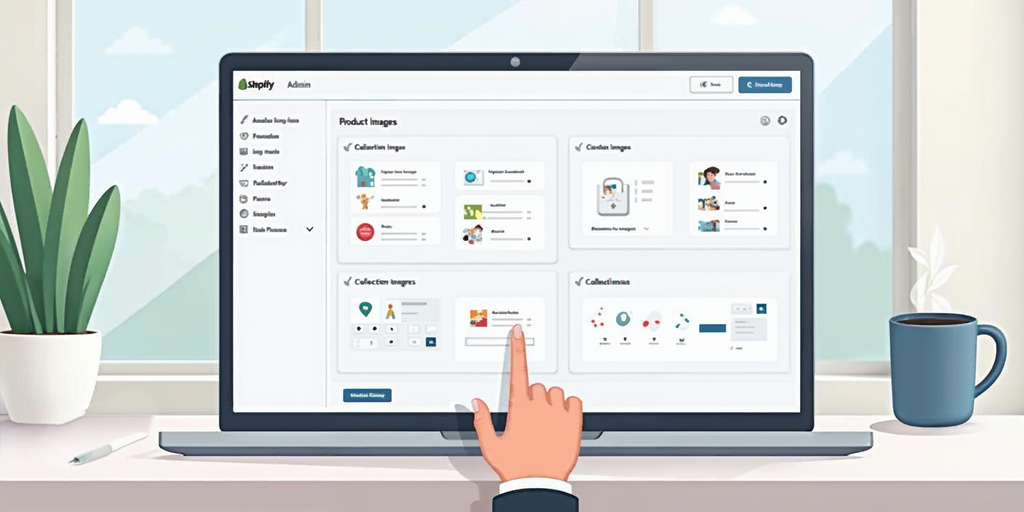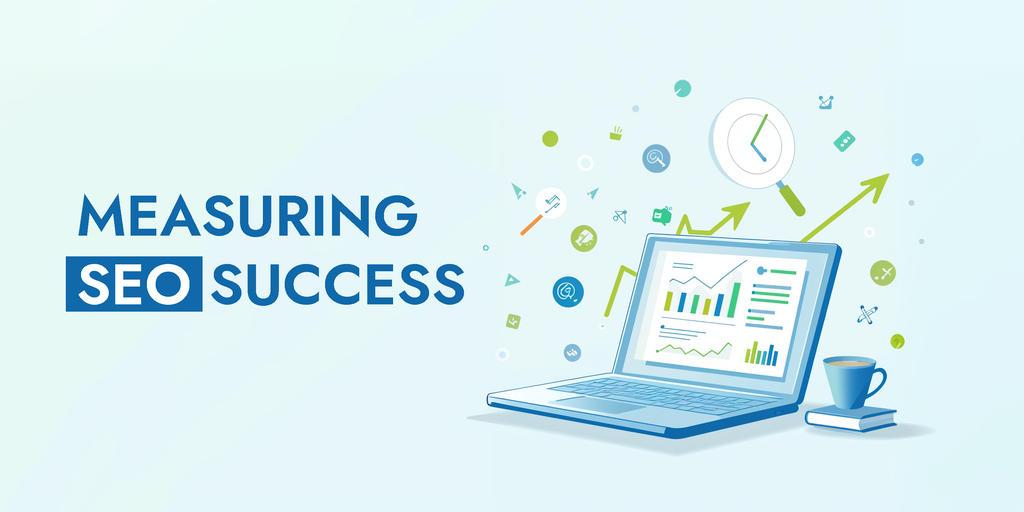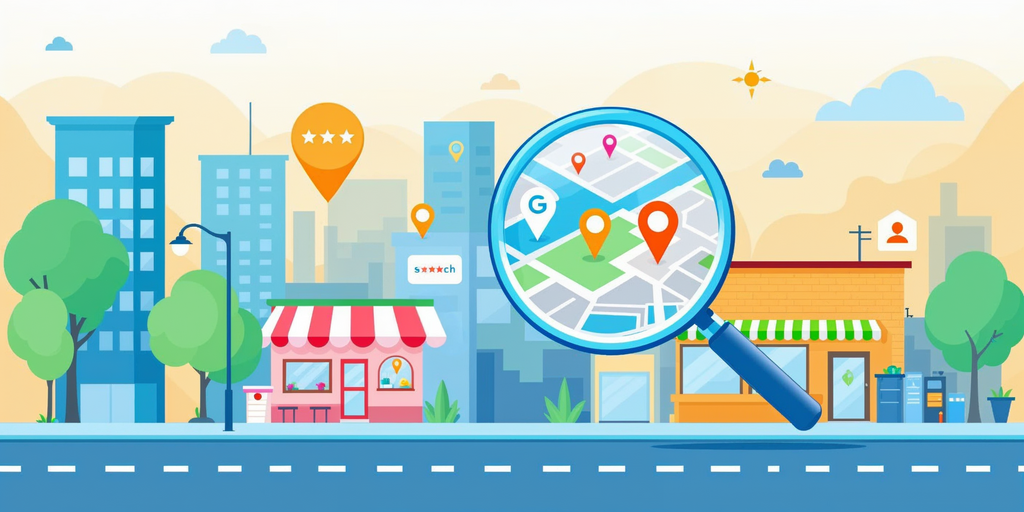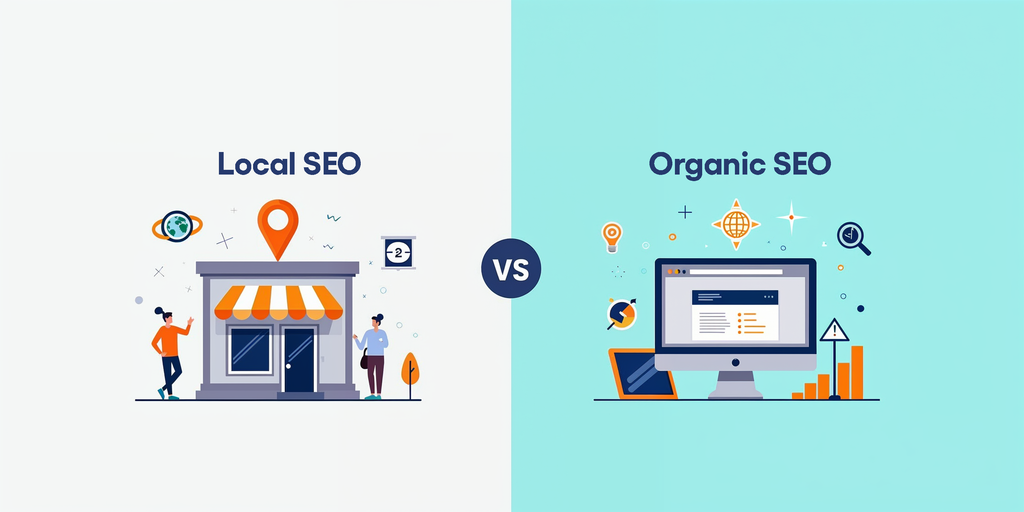What is the Difference Between Local and Organic SEO?
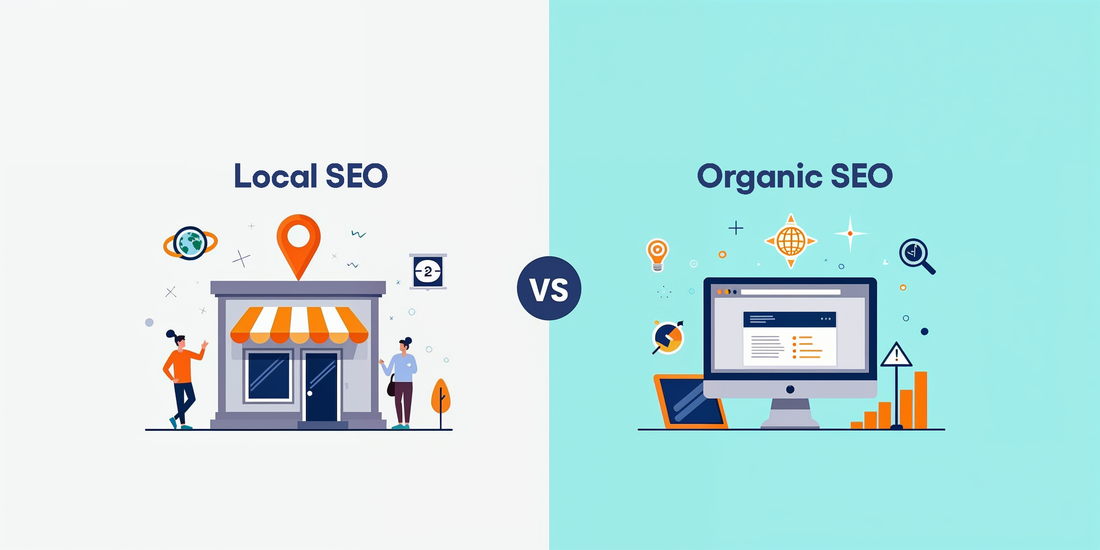
In digital marketing, getting noticed on search engines can make or break a business. Yet, not all SEO strategies are created equal—Local SEO and Organic SEO serve very different purposes. Understanding the difference between these two can help you reach the right audience and maximize your online presence. In this guide, we’ll unpack Local and Organic SEO, explore the tools, benefits, and methods of each, and help you decide how to use them for your business.
Local SEO: Standing Out in Your Neighborhood
Local SEO is all about getting your business seen by customers searching within your geographical area. Think of it as a digital “welcome” sign that directs people nearby to your door. If your business serves a particular region or has a physical location, Local SEO is essential for bringing in local searchers with high intent.
Key Components of Local SEO
-
Google Business Profile (GBP)
Google Business Profile is the cornerstone of Local SEO optimization. It lets potential customers find your business on Google Maps, see your hours, and even browse through photos and reviews. Keeping your Google Business Profile up-to-date boosts your visibility in local search results and increases trust. -
Local Citations
Local citations are online mentions of your business name, address, and phone number across directories like Yelp, Yellow Pages, and Facebook. Consistency in these listings is crucial, as it signals to search engines that you are an established, credible local business. -
Localized Content
Tailoring content to your area can make a big difference. Mention local events, your city or neighborhood, and use local keywords like “coffee shop in Denver.” Search engines see this as a signal of relevance, increasing your chances of ranking in local search SEO results. -
Customer Reviews
Reviews are more than just social proof; they’re a ranking factor for Local SEO. Google, Yelp, and similar platforms prioritize businesses with positive reviews, giving you a leg up in local search results. Responding to reviews—good or bad—shows you value customer feedback, a factor that builds credibility with both search engines and potential customers. -
NAP Consistency
Your business name, address, and phone number (NAP) should be identical across all platforms. Discrepancies can confuse search engines and lower your local rankings.
Benefits of Local SEO
-
Higher Local Visibility
Businesses with solid Local SEO efforts are more likely to appear in the Local Pack—the box with the map and top three businesses in your area. If you want to be front and center for local searches, this is where you want to be. -
Increase in Foot Traffic and Conversions
Local searches often result in immediate visits. Nearly half of “near me” searches lead to an in-person visit within a day. Local SEO isn’t just about getting noticed online; it drives customers through your door. -
Budget-Friendly for Small Businesses
Small businesses often don’t have the budget for broad, national campaigns. Local SEO focuses on your immediate market, making it a cost-effective way to reach people ready to buy.
Challenges and Limitations of Local SEO
-
High Competition in Dense Areas
In urban centers or highly populated areas, Local SEO can be competitive. You’re vying for one of the top spots in the Local Pack, often against other well-established businesses. -
Geographic Limitation
Local SEO narrows your reach to a specific area. For businesses looking to expand beyond their local community, Organic SEO may be more effective.
Organic SEO: Going Beyond Geographic Boundaries
While Local SEO focuses on a specific area, Organic SEO is the broad reach approach. Organic SEO is what gets your website ranked on the main search results page (SERP) for non-localized searches. The aim here is to build visibility and authority, reach a larger audience, and maintain a sustainable stream of visitors over time.
Key Components of Organic SEO
-
Keyword Research and Optimization
The foundation of any SEO strategy is keywords. Researching the terms your target audience uses, such as “digital marketing strategies” or “affordable web hosting,” and incorporating them naturally into your content boosts your relevance for those searches. -
High-Quality Content
Creating content that answers user questions, solves problems, or provides value is essential for Organic SEO. Blog posts, guides, and articles that focus on your audience’s interests keep them coming back and sharing, boosting your authority in search engines’ eyes. -
On-Page Optimization
On-page SEO includes refining meta descriptions, title tags, headers, and image alt text with relevant keywords. This helps search engines understand your content and improves the likelihood of ranking higher on the SERP. -
Technical SEO
Behind-the-scenes work like optimizing site speed, ensuring mobile responsiveness, using HTTPS, and setting up a clean website architecture all contribute to better Organic SEO performance. -
Backlink Building
Backlinks—links from other reputable sites to yours—are like votes of confidence. High-quality backlinks signal that your content is valuable and trustworthy, giving a significant boost to your organic rankings. -
User Experience (UX)
Smooth navigation, quick load times, and mobile-friendliness all enhance the user experience. Google and other search engines value UX highly, so the better your website performs, the higher it may rank.
Benefits of Organic SEO
-
Reaches a Wider Audience
Organic SEO is not limited by geography, allowing you to reach a larger audience. This is perfect for e-commerce sites, blogs, and businesses with national or international reach. -
Long-Lasting Impact
While Organic SEO may take time to establish, once your site ranks well, it provides ongoing visibility without ongoing ad costs. -
Boosts Brand Authority
Appearing high in organic search results establishes you as a trusted source in your industry. Quality content combined with a strong backlink profile builds a reputable brand image.
Challenges and Limitations of Organic SEO
-
High Competition for Popular Keywords
Ranking for broad keywords like “SEO services” or “best smartphones” is challenging, especially against established players. -
Resource-Intensive
Content creation, technical optimization, and backlink building all require a steady investment of time and resources.
Comparing Local SEO and Organic SEO
|
Feature |
Local SEO |
Organic SEO |
|
Audience Focus |
Local customers with immediate intent |
A broad audience looking for general information |
|
Primary Objective |
Boost visibility in local searches and maps |
Improve rankings in general search results |
|
Ranking Factors |
Proximity, relevance, reviews |
Content quality, keywords, backlinks |
|
Keyword Focus |
Location-specific (e.g., “bakery in Boston”) |
Industry-specific (e.g., “best SEO tools”) |
|
SERP Placement |
Local Pack, map results |
Standard organic search results |
|
Best Use Cases |
Physical stores, local service providers |
E-commerce, content-driven sites, national brands |
When to Use Local SEO vs. Organic SEO
-
Local SEO Best Use Cases
Local SEO works best for businesses that serve specific regions, such as restaurants, retail stores, and home services. If your goal is to attract foot traffic or serve local clients, Local SEO is for you. -
Organic SEO Best Use Cases
Organic SEO is ideal for online-only businesses, content sites, and national brands. It’s also the right fit for businesses aiming to build long-term brand authority and attract a broad audience.
Example: A neighborhood bakery should invest in Local SEO to attract customers nearby, while a national online shop selling kitchen gadgets would benefit more from Organic SEO.
Combining Local and Organic SEO for a Balanced Strategy
Using Local and Organic SEO together can yield excellent results. Here’s how:
-
Boost Visibility on Multiple Fronts
Combining these strategies means you can appear in the Local Pack for location-based searches and on the main SERP for broader terms. This dual visibility brings in both local foot traffic and broader online traffic. -
Increase Brand Trust
Appearing in both local and organic search results reinforces your credibility. Customers are more likely to trust a business they see frequently in search results. -
Optimize for Voice Search
Voice searches often have a local intent, especially “near me” queries. Using natural language and conversational keywords can help capture both voice search and regular search traffic. -
Create Local Landing Pages with Broader Keywords
Localized landing pages tailored to specific locations can also rank for general keywords, capturing both types of traffic.
Wrapping It Up
Local and Organic SEO are powerful strategies for different purposes. Local SEO directs people nearby to your business, making it ideal for driving foot traffic. Organic SEO, on the other hand, builds authority and broad visibility over time. By strategically using both, you can maximize your reach and attract a diverse audience, whether local or nationwide.
Want to reach customers locally while building a brand that people recognize far and wide? A balanced Local and Organic SEO approach can be your path to lasting online success.
Share via
